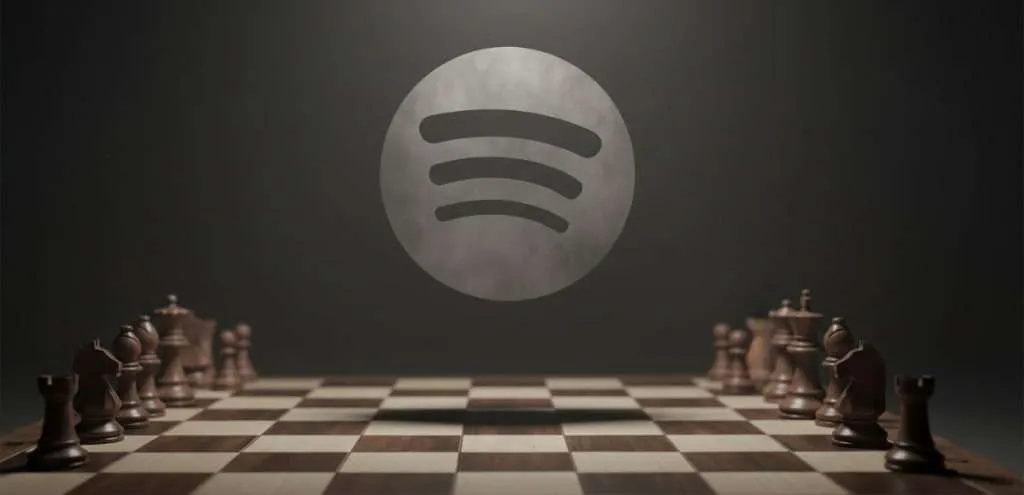Now Reading: After Spotify Bags Kobalt, the Question Arises: What’s Up Spotify’s Sleeve?
-
01
After Spotify Bags Kobalt, the Question Arises: What’s Up Spotify’s Sleeve?
After Spotify Bags Kobalt, the Question Arises: What’s Up Spotify’s Sleeve?

After inking a direct publishing deal with UMPG, Spotify is now on a roll with Warner Chappell and Kobalt deals. But why Kobalt — and what’s Spotify’s game here?
Spotify’s been signing one direct music publishing mega-deal after another, with Kobalt the latest. Sony Music Publishing is apparently next, with NMPA-affiliated publishers potentially roped into an org-negotiated deal after that.
The kicker here is that every direct deal supersedes statutory rates hammered out by the US Copyright Royalty Board. That doesn’t eliminate the existence of those statutory terms, but for those operating within the cozy confines of a mega-publisher like Universal Music Publishing Group, it makes them better.
But that invites a seemingly perplexing question: why would Spotify want to ink deals that are less advantageous than the government-mandated rates?
One reason is that after getting bamboozled by a serious rate-cutting bundling ploy, mega-publishers like UMPG threatened to bring their mega-label big brothers to the playground if they didn’t get a better deal. That theory also works with Warner Chappell and its umbrella megalith WMG, but what about Kobalt?
Perplexing the riddle further is that Spotify isn’t the benevolent donor of fair royalties — to put it mildly.
Quite the contrary: the mega-streamer has a long and sordid history of paltry payouts. Musicians are advised to read their Spotify royalties reports with a stiff drink, though Spotify also slashed-and-burned publishing rates through its aggressive-and-sly bundling scheme.
So why come back to the table with a company like Kobalt, who has less leverage than the majors and would theoretically take the government’s crappy royalties and like them?
Here’s where the chatter amongst the industry insider intelligentsia gets interesting. Because even though Spotify doesn’t give a crap about your royalties, they do care about their stock price.
According to intel shared with Digital Music News, Kobalt is now part of a ‘serious long game’ strategy by Spotify — one that could add many more billions to the company’s already lofty valuation. The key is stability and predictability when it comes to publishing costs, both catnip for Wall Street investors —and a structure that Spotify craves.
Let us unpack this a bit more.
Keep in mind that for all the hand-wringing over Spotify’s cut-rate bundling discounts, CRB rates are routinely renegotiated — and in flux. Case in point: the next major Phonorecords rate-setting session, which would be Phonorecords V, will cover the period starting on January 1st, 2028, and cover all-important mechanical and performance royalty rates on streaming platforms like Spotify.
For all Spotify knows, Phonorecords V could dramatically increase publishing royalty requirements across the board and impact profit margins in the process.
But this time, sources to DMN across the DSP, label, and publishing spectrum are pointing to a completely different rate-setting process.
After all, Spotify will come armed with lots of ‘willing buyer, willing seller’ deals, which are powerful exhibits for the rate-setting bureaucrats.
But instead of simply touting deals with mega-pubs like UMPG, Spotify also has a special card in its deck: a deal with the indie-heavy Kobalt. Suddenly, Spotify can show the esteemed members of the CRB a breadth of different deals, including those involving at least one indie-level pub (and perhaps more).
DMN’s been digging a bit deeper into the actual terms of these deals, and as you’d expect, they’re better than the statutory deals negotiated through CRB proceedings. But critically, Spotify is understood to be scoring a discount overall, at least when factoring in the jaw-dropping discounts achieved through their crafty bundling ploy.
And that’s all music to Wall Street’s ears, which loves a long-term, more stable cost structure. Remove the threat of variable and increasing publishing royalties, and Daniel Ek may rake in enough to buy that soccer team after all.
There’s also the nicety of getting the NMPA off your back.
Spotify easily shook a lawsuit from the MLC, but NMPA helmsman David Israelite has been directing non-stop hell-and-fury towards the Swedish streamer. That includes dropping a pesky lawsuit over podcasting infringement, plus a promise to stymie licensing on Spotify’s currently nonexistent superfan and premium expansions.
“We also understand that Spotify wishes to offer a ‘remix’ feature allowing Spotify subscribers to ‘speed up, mash up, and otherwise edit’ their favorite songs to create derivative works,” the NMPA wrote back in May 2024. “Spotify is on notice that release of any such feature without the proper licenses in place from our members may constitute additional direct infringement.”
It should be noted that Spotify hasn’t released their remix feature.
Meanwhile, serious storm clouds are billowing on the Spotify’s US subscriber horizon.
Throughout the year, sources to DMN have been drizzling on Spotify’s ‘up-and-to-the-right’ subscriber forecasts, particularly in the ARPU-rich United States. Most recently, major IP owners, distributors, and administrators have been sharing data showing a stubborn plateau in Spotify’s US-based subscribers, including some month-over-month declines.
There’s also another bombshell-in-wait coming from Apple Music, particularly relating to some unexpected subscriber gains (or even shifts from Spotify) in Q2. Taking a closer look: Apple’s gains are being buoyed by family plans and other bundles, which cater to tighter wallets. Indeed, it looks like consumers are a tad more price-sensitive than Ek & Co. imagined, and there’s a very real reason why Spotify isn’t hiking prices in America.
But DMN Pro subscribers already know the dirty details on that one.
Got a tip? Confidentially email news@digitalmusicnews.com, text +1 (310) 804-0560, or Signal to digitalmusicnews.07.
























